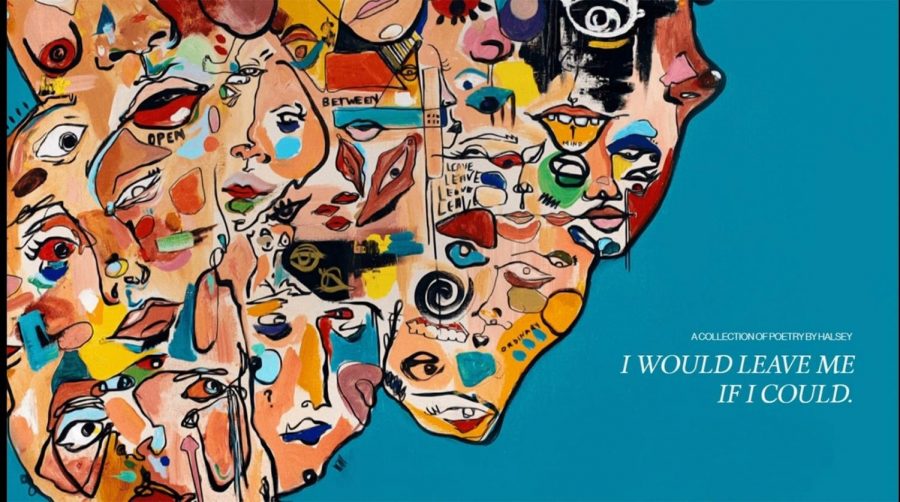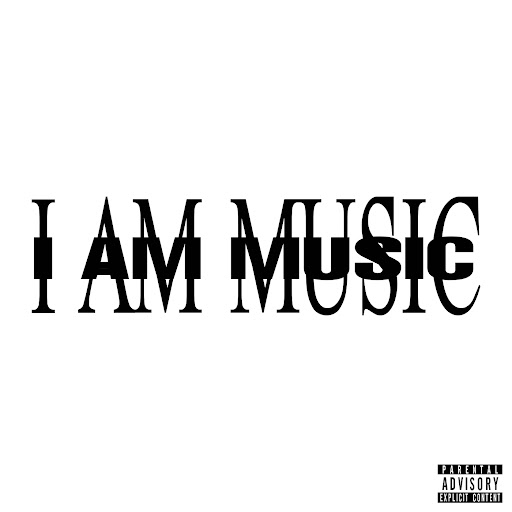Despite not receiving any nominations for her platinum album “Manic” this Grammy award season, Halsey is far from having an unsuccessful year, even in 2020. With her latest literary release, the singer can now add “New York Times Bestseller” to her growing list of accolades.
“I Would Leave Me If I Could” is a complete collection of poetry written over the past few years that detail her experiences with on-and-off relationships, bipolar disorder and other deeply personal subjects. The poems aren’t always pretty, but longtime fans of Halsey should be familiar with her candid tone. With 130 pages filled with her raw and unfiltered thoughts, Halsey reveals a side of her that is distinctively her own — yet refreshingly haunting.
The cover art of Halsey’s first publication truly demonstrates the creative capacity that the pop singer has before glimpsing at the poems themselves. Painted by hand, the piece is titled “American Woman” and displays a conglomerate of human features. A closer look will reveal some of the key words from the collection written in bold across each caricature, such as “ordinary” and “between.” The celebration of the female body is also highlighted in Halsey’s imaginative work and hints toward the themes that are discussed within the book. It can certainly be described as abstract in its most generalized form, but the artwork is a grand introduction that foreshadows the poems’ focal points. The question that remains is whether her poetic voice matches the elaborate first impression she has made on her readers in an industry that has gradually become dominated by famous names.
This year alone, celebrities and influencers have released their own poetry collections, such as Lana Del Rey’s “Violet Bent Backwards over the Grass,” Lili Reinhart’s “Swimming Lessons,” and Gabbie Hanna’s “Dandelion.” While all have received relatively positive reviews, it is interesting to note this heightened interest towards popular creative writing and its implications for the literary world. There is an evident interwovenness between the professions of songwriting, acting, video production, etc. which has now found a place in poetry. It is fascinating to witness the similarities between each author and their personal triumphs and losses depicted by the written word. As this new wave of writers possesses the advantage of their platforms that rely on praise and constructive criticism, not to mention access to the resources needed to receive a head start in the publishing process, there is the concern of whether they are taking away space from BIPOC and LGBTQ+ poets who have not had their voices heard.
Halsey poses an exception to this group as a bisexual and biracial woman. Although she strongly identifies with these communities, there are few poems in “I Would Leave Me If I Could” that delve deeper into her attitudes about living with these labels. For instance, “Bad Day” is a short series of four poems that emphasize the lows of bipolar depression and their sporadic appearance reflect the disorder’s unpredictable nature. As the topics change frequently from page to page, the arrangement of poetry can seem disorganized at first.
However, there is a beauty to this nonconsecutive placement. Halsey demonstrates her willingness to share her imperfections with an audience that may be accustomed to idolizing her persona. In this way, the reader is a witness to the inner workings of Halsey’s mind, absorbing the conscious flow of thoughts that compose her true identity outside of the spotlight. This unique style challenges the expectations of the singer’s image and provides new insight into the inspiration behind some of her hit songs.
With her debut poetry collection, Halsey has entered a new realm of creativity in which she has fallen right into place. Her voice stands out among the many who have tried their hand at poetry, bringing a diverse voice to the table and reaching millions of young fans who also share her story. “I Would Leave Me If I Could” is a promising start to a writing career that has already demonstrated the depths of Halsey’s expansive imagination.










